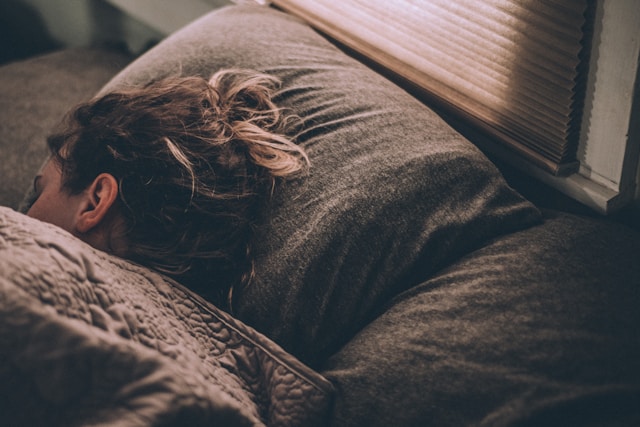Sleep is a crucial component of overall well-being, yet it is one of the most underappreciated aspects of health in modern culture. Stress and noise from the fast-paced nature of life, as well as continuous exposure to digital devices, can cause the mind to struggle to enter a tranquil state that is conducive to peaceful sleep. Deeper, more restful sleep can be achieved by understanding the connection between lifestyle, environment, and the body’s internal clock.
Establishing a Consistent Sleep Routine
Consistency is crucial for training the body’s internal clock, also known as the circadian rhythm. Even on weekends, consistently going to bed and waking up at the same time helps to establish a pattern that supports more regular and effective sleep. This rhythm helps the body to predict when it is time to relax, therefore lowering the time required to fall asleep and enhancing the quality of sleep over time. Changing from a normal schedule, particularly with erratic sleep patterns, confuses the brain and leads to disrupted rest. While avoiding bright screens in the evening avoids disturbance of melatonin production, exposure to natural light in the morning helps reinforce the rhythm.
Creating a Relaxing Sleep Environment
The quality of one’s sleep is heavily influenced by the surroundings. A quiet, dark, cool, and pleasant sleep-friendly atmosphere should provide a haven for relaxation. Darkness causes the manufacture of melatonin, the hormone that induces sleep, therefore, blackout curtains or sleep masks can considerably minimize artificial light. To reduce distractions, use white noise machines or earplugs as needed. Temperature is also a significant consideration; a chilly atmosphere usually allows for better sleep than a warm one. From the mattress to the pillows and sheets, comfort in bedding has a big impact on physical relaxation while lying down. A clean, uncomplicated room promotes serenity by reducing clutter and overstimulation, which can communicate tension to the brain.
Mindful Practices Before Bed
Incorporating attentive techniques into the bedtime routine establishes a strong link between the hectic energy of the day and the serenity of the night. Meditation, deep breathing, and progressive muscle relaxation techniques help the nervous system transition from a state of alertness to one of calmness and relaxation. These techniques lower stress hormones, slow the pulse rate, and relax the muscles, resulting in a physiological condition conducive to sleep. Engaging in a moment of quiet reflection or journaling might help clear mental clutter, allowing the brain to process thoughts without bringing them into the sleep area. It is crucial to avoid stimulating activities, such as watching action-packed television, reading intense literature, and engaging in emotionally charged conversations.
The Role of Diet and Natural Supplements
The relationship between eating and sleeping is more important than you would think. Large meals or caffeine late in the evening can disrupt sleep cycles, but foods high in tryptophan, magnesium, and melatonin can promote better sleep. Light, balanced dinners featuring leafy greens, almonds, or whole grains can enhance relaxation and promote the release of soothing neurotransmitters. Natural supplements, when used wisely, can provide a helpful nudge towards better sleep, particularly for people going through stressful or transitional phases. The market now offers plant-based sleep aids that contain substances specifically selected for their calming properties. Individuals can easily get the best THC gummies for sleep from a reputable online provider, which provides a plant-based solution that promotes rest without the use of harsh chemicals. A deliberate approach to nutrition and supplementation can be an effective tool for encouraging deeper and more consistent relaxation.
Physical Activity and Exposure to Daylight
Regular physical activity improves sleep quality by lowering anxiety, elevating mood, and lengthening restorative sleep phases. Movement throughout the day, whether through walking, yoga, swimming, or formal exercise regimens, relieves tension and expends energy, allowing for a more natural need for recovery. Exercise also increases the creation of endorphins and other mood-regulating chemicals, which reduces mental tension and promotes a happier state of mind before bedtime. It is critical, however, to time physical activity correctly; indulging in strenuous workouts too soon to bedtime might have a stimulating effect that delays sleep onset. Exposure to natural daylight in the morning and early afternoon is also important for synchronizing the body’s internal clock.
Conclusion
Achieving quality rest is both a science and an art, requiring attention to both the internal mental state and the external variables that influence the body. While modern distractions and fast-paced lifestyles make it challenging to get enough rest, reverting to natural practices enables more restful sleep. A balanced approach includes establishing consistent routines, providing a tranquil environment, practicing mindfulness, making informed nutritional choices, and engaging in regular physical activity. These methods offer environmentally friendly and gentle alternatives to chemical remedies, promoting overall well-being.


